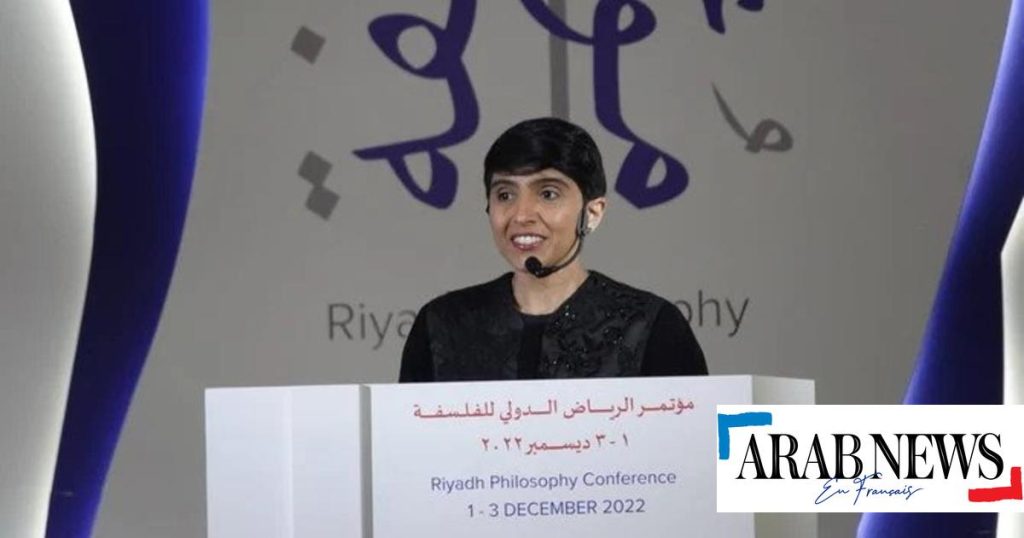
The Forum in Riyadh: Space could become “our home” sooner than we think
RIYADH: The second edition of the Riyadh Philosophy Conference kicked off on Thursday, bringing together international and local scholars to discuss topics on the theme “Knowledge and Exploration: Space, Time, and Humanity.”
The event, organized by the Saudi Literature, Publishing and Translation Authority, over a period of three days, began with a welcome speech from the Saudi critic, thinker and translator Saad bin Abdul Rahman Al-Buzai, who was presented by the Executive Chairman of the Authority, Muhammad Alwan. With more than 19 countries participating, the global platform targets a wide audience of various academic and professional backgrounds.
“We are heading towards endless informational and exploratory horizons, towards space, time and humanity, settling into our human destiny, our moral values and our scientific standards for the universe,” Mr. Albania said.
“We will create a philosophical space out of our physical space, proposing new concepts in a hitherto unexplored field, in the spirit of the pioneering research addressed by the distinguished guests of this conference.”
While space travel is undoubtedly a dream for many, space may become our “home” much sooner than we think. Michelle Ashmemry’s keynote, moderated by Professor Nicholas D. Warren of Penn State University, explored the future concept of humanity becoming an interplanetary species.
We have to prepare for our future because no one knows that. Yes, we can observe all these objects orbiting the Earth, but there is a lot we can’t know about.
I do not claim that it is the only solution. I think we have to have our backs, invest in all the necessary technologies and all possible solutions to avoid this existential problem – whether it’s going to Mars or getting ready to go there, or intercepting an asteroid – and have mechanisms in place to detect it in advance and give us enough time to react.”
The space conversation continued with Abdullah Al-Ghathami, Professor of Criticism and Theory at King Saud University, who delivered a keynote address titled “Humanity in Space: Glory or Power.”
Great thinkers took part in the discussions, which included “classroom inquiry techniques.” A conference presented by the Director of the Institute of Insight, Dalia Tounsi, and “Chaos and Slogans,” with physicist Reem Taibah and advisor to the Saudi Space Authority Haitham Al-Tuwaijri.
This year’s conference follows on the success of last year’s event, which focused on unpredictability.
The Forum aims to make the study of philosophy, once a taboo in the region, more accessible by engaging contemporary philosophers, scholars, writers and thinkers from around the world.
Discussions over the next few days will revolve around the state of contemporary science, the intricacies of space diplomacy and climate change, justice and ethics in exploration, and finally the dilemmas of artificial intelligence.
This text is a translation of an article published on Arabnews.com

“Organizer. Social media geek. General communicator. Bacon scholar. Proud pop culture trailblazer.”
